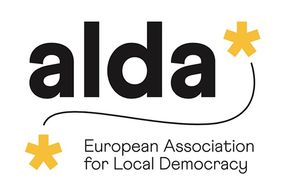Recommendations for an Effective and Inclusive Clean Energy Transition Sub-Programme within LIFE 2021-2027
Cities, regions and their energy agencies are striving to accelerate their energy and environmental transition
Dear Representatives in the Council of the European Union,
Cities, Regions and their Energy Agencies are striving to accelerate their energy and environmental transition that is a driving force for innovation, job creation, growth, social inclusion and overall territorial development. Within the context of the proposed changes within the Multiannual Financial Framework 2021-2027, and specifically the creation of a LIFE subprogramme on the Clean Energy Transition, the European Networks FEDARENE, EUROCITIES, Energy Cities and Climate Alliance carefully considered the opportunities that these changes present to local/regional authorities and their energy agencies. In order to guarantee the vital impact of clean energy & climate related market uptake and capacity building activities, in light of the European Parliament’s Report and ahead of the Environment Council meeting on the 20th of December, we reaffirm the following key needs:
1.Higher and differentiated co-financing rates for Clean Energy Transition
Cities, Regions, Energy Agencies and their stakeholders have been extremely active and successful in the Intelligent Energy Europe and Horizon 2020 programmes, where they benefited from 100% funding, but will not be in a position to engage with the LIFE programme with the funding rates of 60% proposed by the European Parliament. We recommend a rate of 80-100% for the Clean Energy Transition sub-programme in order to continue attracting these crucial actors. Considering the differences of targets and support needs between sub-programmes, a differentiation of co-financing rates amongst the subprogrammes set out in Article 4 is justified and would enable the LIFE programme to reach a larger variety of stakeholders, including smaller organisations. Differentiated minimum rates for co-financing should therefore be foreseen in article 17 of the proposed Regulation.
2. Recognition of Clean Energy Transition as a new direct objective in the LIFE programme
As clean energy related market uptake and capacity building activities are being moved from Horizon 2020 to the LIFE programme1 , LIFE becomes a key support instrument for the energy transition in Europe. Therefore, transition to clean energy must remain referenced in Article 3 paragraph 1 of the proposed Regulation as a general objective of the programme. The transition to clean energy and improved energy efficiency is an essential driver for the mitigation of climate change, with key co-benefits for the environment and in line with the LIFE framework. Furthermore, any increase in the programme’s overall envelope should keep the same proportional distribution between fields and sub-programmes as in the Commission proposal (article 5 of the proposed Regulation), without missing the urgency of funding the clean energy transition where investment gaps remain considerable2 and needs to effectively transfer solutions from R&D into reality are substantial. Ambitious commitments of local and regional authorities, such as the ones mobilised in the Covenant of Mayors for Climate and Energy – Europe3 need to be backed by appropriate financial support.
3. Inclusion of sustainable energy experts in the LIFE Committee
The present LIFE programme structure has a transversal concern for energy, but no specific sub-programme as it will be the case starting from 2021. As approximately 18% of the overall budget of LIFE is proposed to be allocated to the clean energy transition, specific sustainable energy experts will need to be involved from here on in the implementation and advisory bodies of this programme, such as the LIFE Committee.
4. Granting access of metropolitan areas to strategic integrated projects
Strategic integrated projects implement national environmental/climate strategies with the involvement of all stakeholders. In the proposed Regulation, they are defined as projects at regional, multi-regional, national or transnational scale. Still, the actions developed at metropolitan level make a key contribution to national and European environmental and climate efforts, such as the National Climate and Energy Plans (NCEPs) required by the Energy Union Governance Regulation. Including actions developed at metropolitan scale in the definition of strategic integrated projects will allow metropolitan areas to apply for such projects and support their capacity to undertake critical transversal, integrated environmental and climate action.
Signatories
FEDARENE (European Federation of Agencies and Regions for Energy and the Environment) is the primary European network of regional and local organisations, which implement, coordinate and facilitate sustainable energy and environment policies. Regional and local agencies, ministries and departments working in these fields are represented in FEDARENE.
Contact : Dominique Bourges: dominique.bourges@fedarene.org
EUROCITIES is the political platform for major European cities. Founded in 1986, we network the local governments of over 135 of Europe’s largest cities and over 40 partner cities that between them govern some 130 million citizens across 35 countries. We engage in dialogue with the European institutions across a wide range of policy areas affecting cities, which include economic development, environment, transport and mobility, social affairs, culture, the knowledge society, and public services.
Contact : Claire Baffert : claire.baffert@eurocities.eu
Energy Cities is the European network of local authorities in energy transition, representing over 1,000 cities across Europe.
Contact : Claire Roumet: claire.roumet@energy-cities.eu
Climate Alliance – For more than 25 years, Climate Alliance member municipalities have been acting in partnership with indigenous rainforest peoples for the benefit of the global climate. With some 1,700 members spread across 25 European countries, Climate Alliance is the world’s largest city network dedicated to climate action and the only one to set tangible targets: each member city, town and district has committed itself to reducing greenhouse gas emissions by 10 percent every 5 years. Recognising the impact our lifestyles can have on the world’s most vulnerable people and places, Climate Alliance pairs local action with global responsibility.
Contact: Andy Deacon: a.deacon@climatealliance.org


